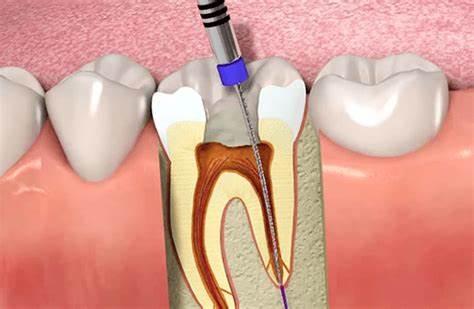Anchor Meadow Health Centre, Aldridge, WS9 8AJ
Anchor Meadow Health Centre, Aldridge, WS9 8AJ


Contrary to how they appear, your teeth are not solid; they are hollow on the inside with a soft centre filled with nerve tissue and blood vessels. Your teeth have roots that anchor your teeth in the underlying bone, and each root has one or more tubes (canals) that house the nerves and blood vessels of the tooth.
When your tooth is damaged or infected, the nerves send out pain signals.
Sometimes, the only way to stop the pain is to remove the nerve from the tooth and seal it off, which is exactly what a root canal does.
What happens in a root canal appointment?
Do you have gum disease? You may need treatment for periodontal disease if you suffer from the following symptoms:
You will have an X-ray taken of your tooth to evaluate the extent of the damage and plan your treatment.
2Your dentist will numb your tooth and the surrounding gums with some local anaesthetic.
3The dentist will drill a hole into your tooth to access the nerve chamber and canals.
4The dentist will carefully clean your tooth to remove all traces of decay and to ensure that the nerve is gone.
5Your tooth will be cleansed and treated with a medicament to prevent a new infection.
6An additional X-ray image or two will be taken during or after your treatment to ensure that the tooth has been completely treated.
7The dentist will fill your tooth to seal it off.
Your treatment may not end there, however. Most teeth are very weak after root canal therapy and need to be reinforced. We will call you back for a new appointment one to three weeks after your root canal where the dentist will check your tooth to place a permanent filling or dental crown.


No matter how anxious you feel, rest assured we have seen somebody more nervous and will do everything we can to help you overcome your fears.
Learn More
Just £14.85 per month
Monday 9am-5pm
Tuesday 9am-5pm
Wednesday 9am-6pm
Thursday 9am-5:30pm
Friday 9am-2pm





